Streamlining Sustainability: Your Essential Guide to a Zero-Waste Bathroom Setup
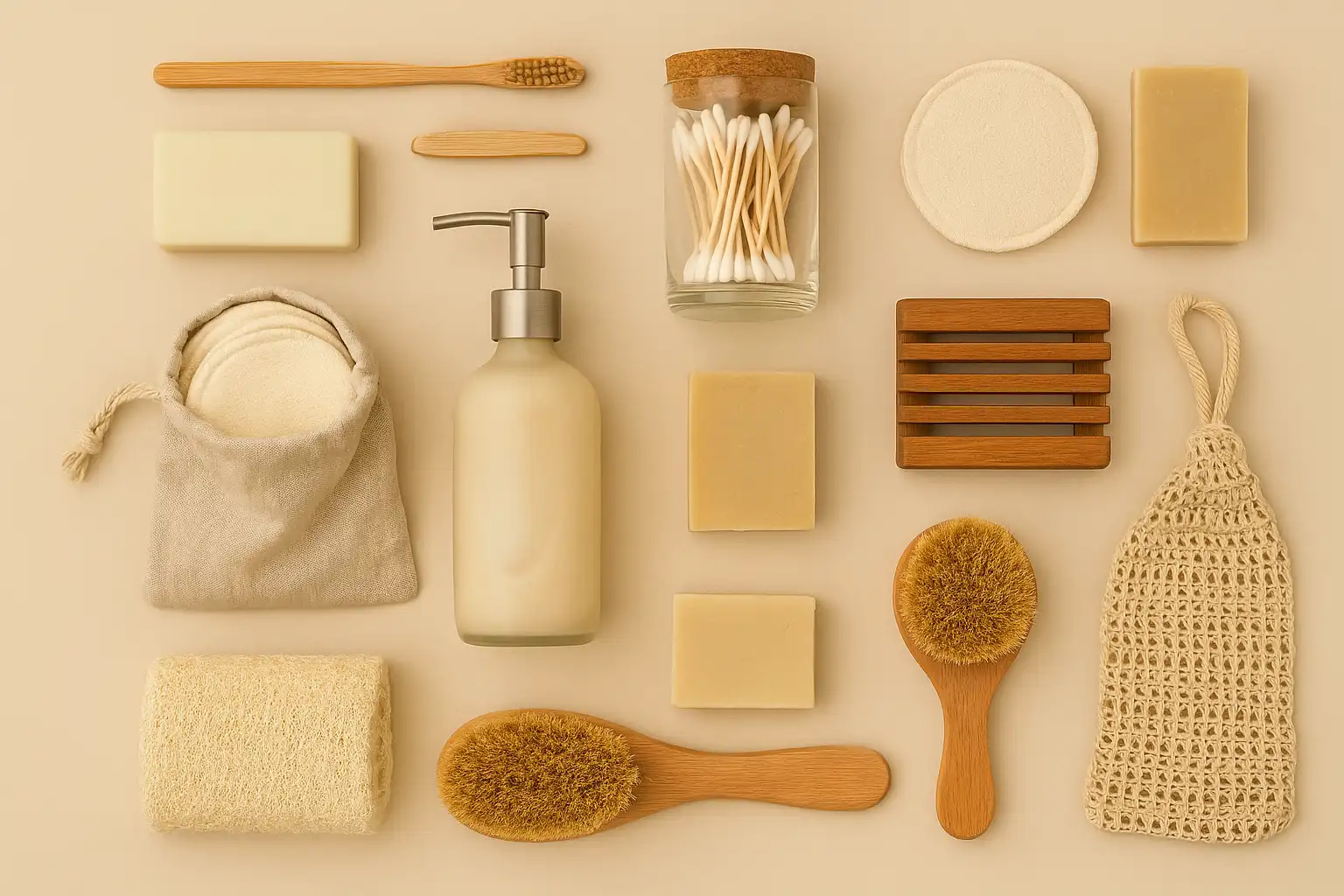
The bathroom, a space dedicated to personal care and hygiene, often becomes a significant source of waste in our homes. From single-use plastics to discarded toiletries, the accumulation can be substantial. However, transforming this space into a haven of sustainability is not only achievable but also surprisingly liberating. Embracing a zero-waste bathroom setup isn't about deprivation; it's about mindful consumption, prioritizing reusable alternatives, and focusing on what you truly need.
This exploration delves into the essential elements for creating a zero-waste bathroom, offering practical insights and actionable steps. Our aim is to educate, encourage, and guide you in curating a space that minimizes environmental impact without sacrificing functionality or comfort.
The Foundation: Reimagining Your Essentials
The journey to a zero-waste bathroom begins with a critical look at the products we use daily. It's about questioning the necessity of single-use items and seeking durable, reusable alternatives.
-
Cleansing Without the Throwaway:
- Soap: Ditch plastic bottles of liquid hand soap and body wash in favor of bar soap. Choose bars that come with minimal or compostable packaging. You can find beautiful handcrafted options or simply opt for unwrapped varieties. Consider using a soap dish made from natural materials like bamboo or ceramic.
- Shampoo and Conditioner: Similar to soap, liquid shampoos and conditioners often come in plastic bottles. Explore solid shampoo and conditioner bars, which are just as effective and come without plastic packaging. Alternatively, look for refillable options at local bulk stores.
- Face Cleansing: Replace disposable makeup wipes with reusable cotton rounds that can be washed and used repeatedly. For cleansing, consider using a Konjac sponge or a washable face cloth.
-
Oral Care: Beyond the Plastic Brush:
- Toothbrushes: Swap plastic toothbrushes for those made from bamboo with replaceable heads or fully compostable handles.
- Toothpaste: Look for toothpaste in recyclable aluminum tubes or consider toothpaste tablets or powders that often come in reusable or compostable packaging.
- Floss: Opt for silk or bamboo dental floss that is biodegradable, often available in refillable dispensers.
-
Hair Care: Sustainable Styling:
- Hairbrushes: Choose hairbrushes made from wood and natural bristles instead of plastic ones.
- Hair Ties: Look for plastic-free hair ties made from natural rubber and organic cotton.
The Tools of the Trade: Reusables for Routine Tasks
Beyond the core cleansing products, many everyday bathroom items can be replaced with reusable alternatives:
- Shaving: Instead of disposable razors, invest in a safety razor with replaceable metal blades. The initial cost might be higher, but the long-term savings and reduction in plastic waste are significant. Consider using natural shaving soaps or creams that come in minimal packaging.
- Menstrual Care: For those who menstruate, reusable options like menstrual cups and cloth pads are game-changers in terms of waste reduction and can also be more comfortable and cost-effective in the long run.
- Toilet Paper: While completely eliminating toilet paper isn't always practical, you can choose brands that use recycled paper and come in packaging with minimal plastic. Some also explore bidet attachments as a way to significantly reduce toilet paper usage.
- Towels: Opt for durable, high-quality towels made from natural fibers like organic cotton or hemp, which will last longer and reduce the need for frequent replacements.
Storage and Organization: Sustainable Systems
A zero-waste bathroom also benefits from thoughtful storage solutions that avoid single-use plastic containers:
- Glass Jars: Repurpose glass jars to store cotton swabs (choose bamboo or paper stems), hair ties, and other small items.
- Metal Tins: Small metal tins are great for storing solid toiletries like shampoo bars or safety razor blades.
- Bamboo Containers: Bamboo is a sustainable and aesthetically pleasing material for organizing bathroom essentials.
- Refillable Dispensers: If you still prefer liquid soap or lotion, opt for attractive refillable dispensers made from glass or stainless steel and buy in bulk to minimize plastic bottle consumption.
What You Really Need: A Minimalist Perspective
Adopting a zero-waste approach often encourages a more minimalist mindset. It prompts us to question whether we truly need a multitude of specialized products. Often, multi-purpose items can simplify our routines and reduce overall consumption. For example, a high-quality natural oil can serve as a moisturizer, makeup remover, and even a hair treatment.
The "essentials" in a zero-waste bathroom are those items that genuinely serve a purpose in your personal care routine and can be obtained or replaced with sustainable alternatives. It's about prioritizing functionality and longevity over excessive variety and single-use convenience.
Embarking on Your Zero-Waste Journey
Transitioning to a zero-waste bathroom is a gradual process. You don't need to overhaul everything overnight. Start by making one or two simple swaps as your current products run out. Over time, these small changes will collectively lead to a significant reduction in waste.
Consider what truly serves your needs and explore the wealth of sustainable alternatives available. This journey is not just about reducing waste; it's about a more conscious and intentional approach to self-care and our relationship with the environment.
By focusing on reusable essentials, sustainable storage, and a mindful approach to consumption, creating a zero-waste bathroom becomes a tangible step towards a more sustainable way of living, one less piece of discarded plastic at a time.
Related Blogs
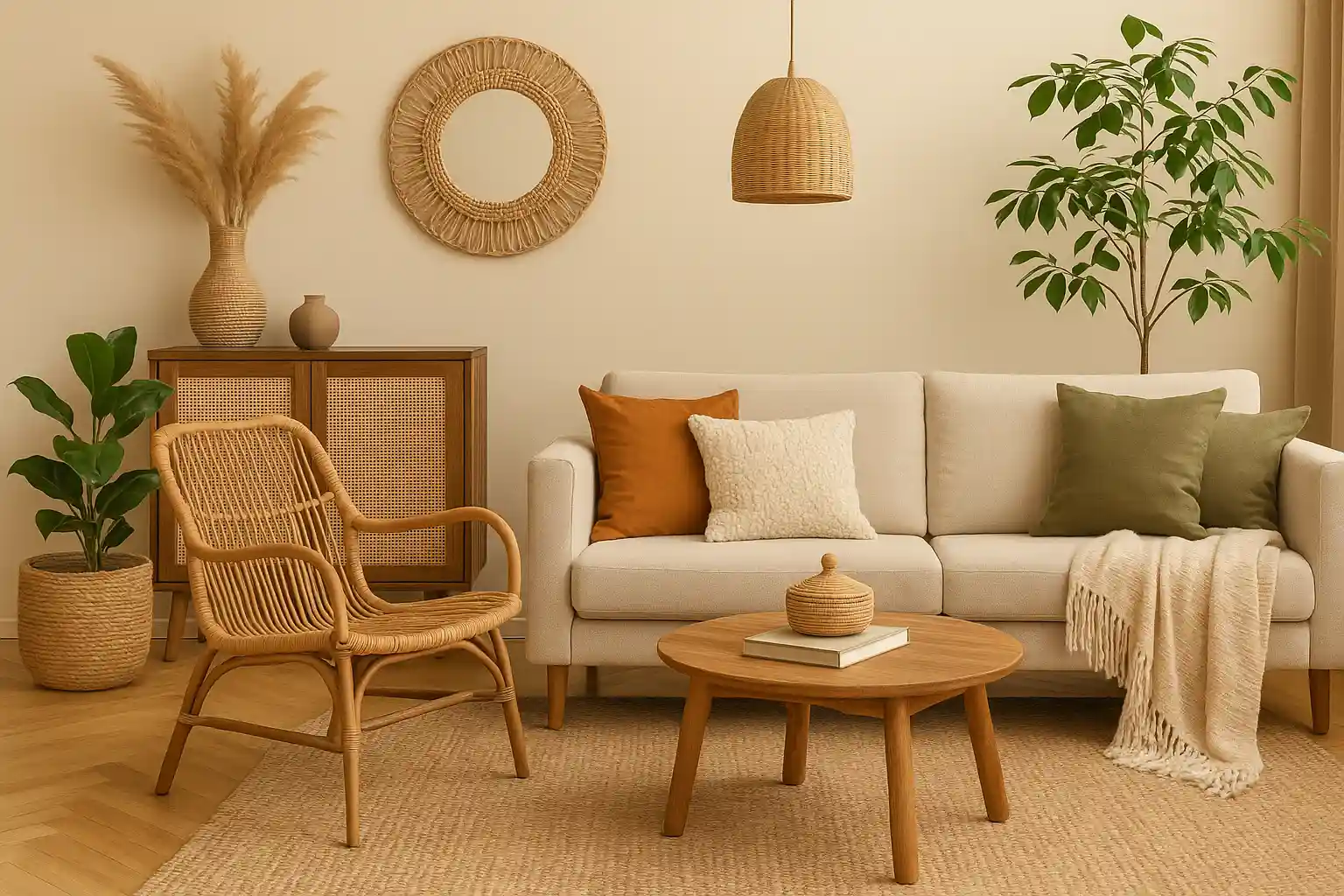
5 Home Decor Trends That Nurture Your Space and the Planet
Insights on 5 home decor trends that are also earth-friendly in a sustainable way.
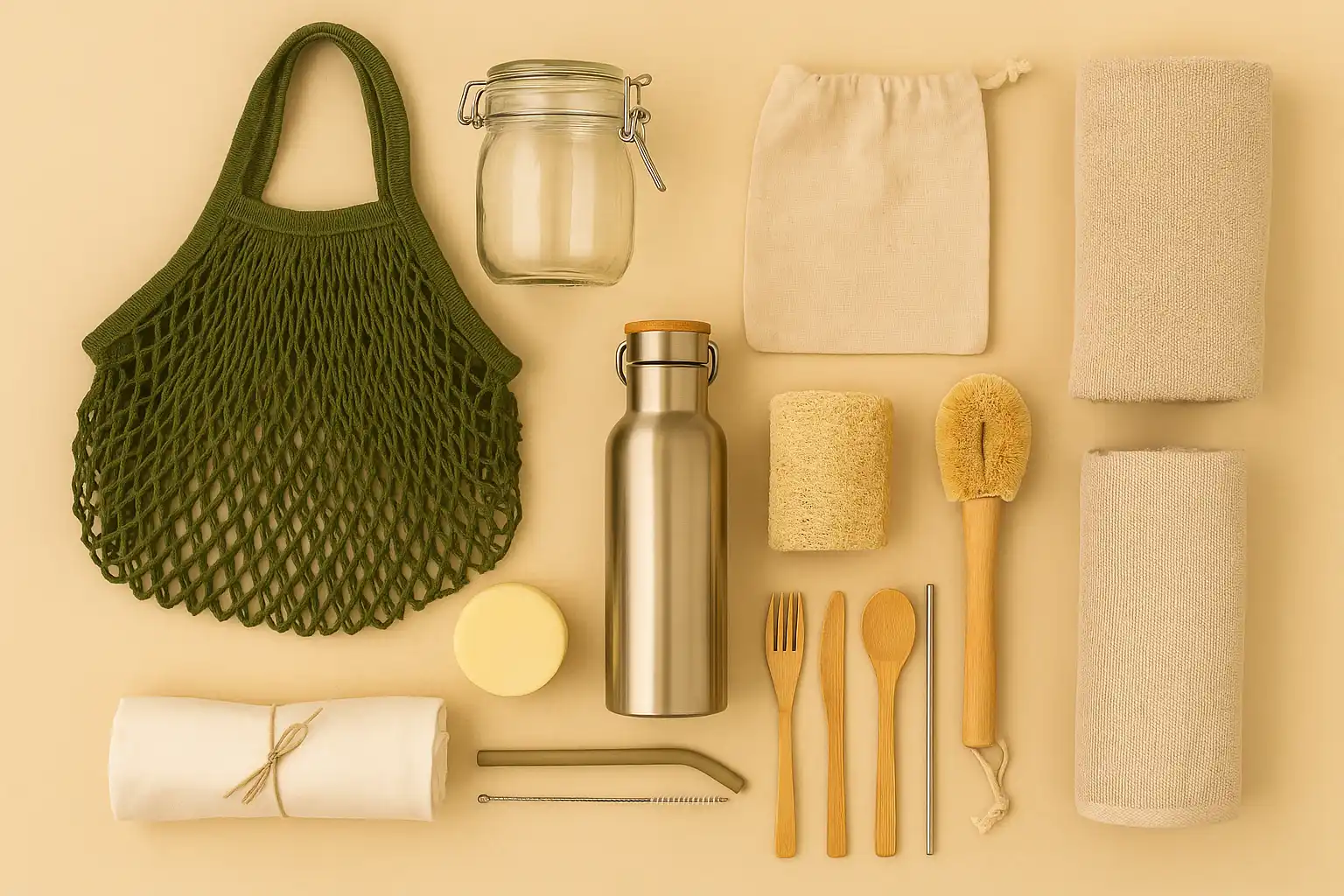
Laying the Foundation for a Greener Home: Your Eco Starter Kit
Insights on building an eco starter kit for your home in a sustainable way.
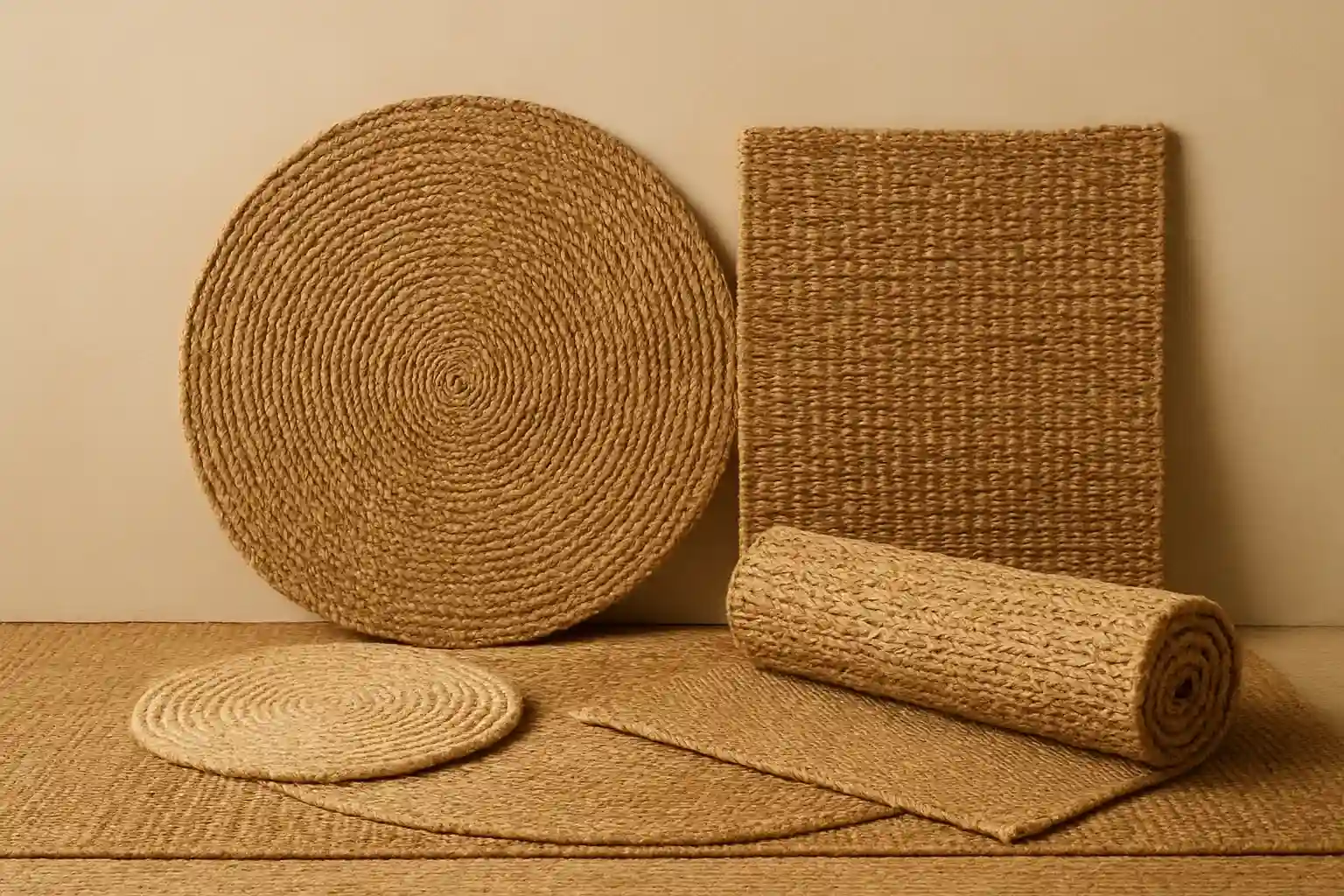
Step Softly on the Earth: Upgrading Your Home with Natural Floor Rugs
Choose biodegradable and non-toxic jute, organic cotton, or wool rugs over synthetic options.
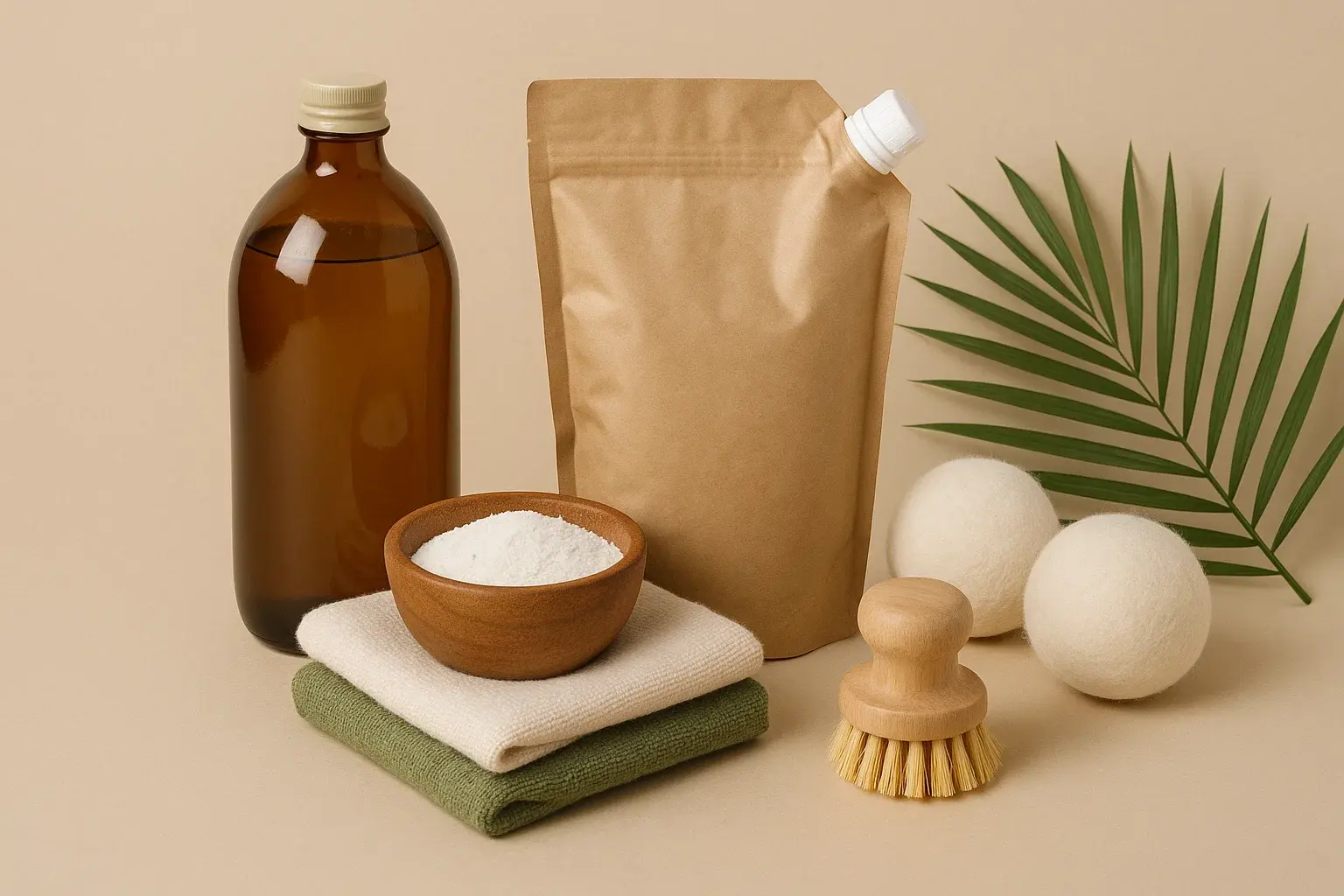
Clean Laundry, Clear Conscience: Sustainable Swaps for Conventional Detergents
Switch to soap nuts, eco-enzyme cleaners, or plant-based detergents for toxin-free laundry.
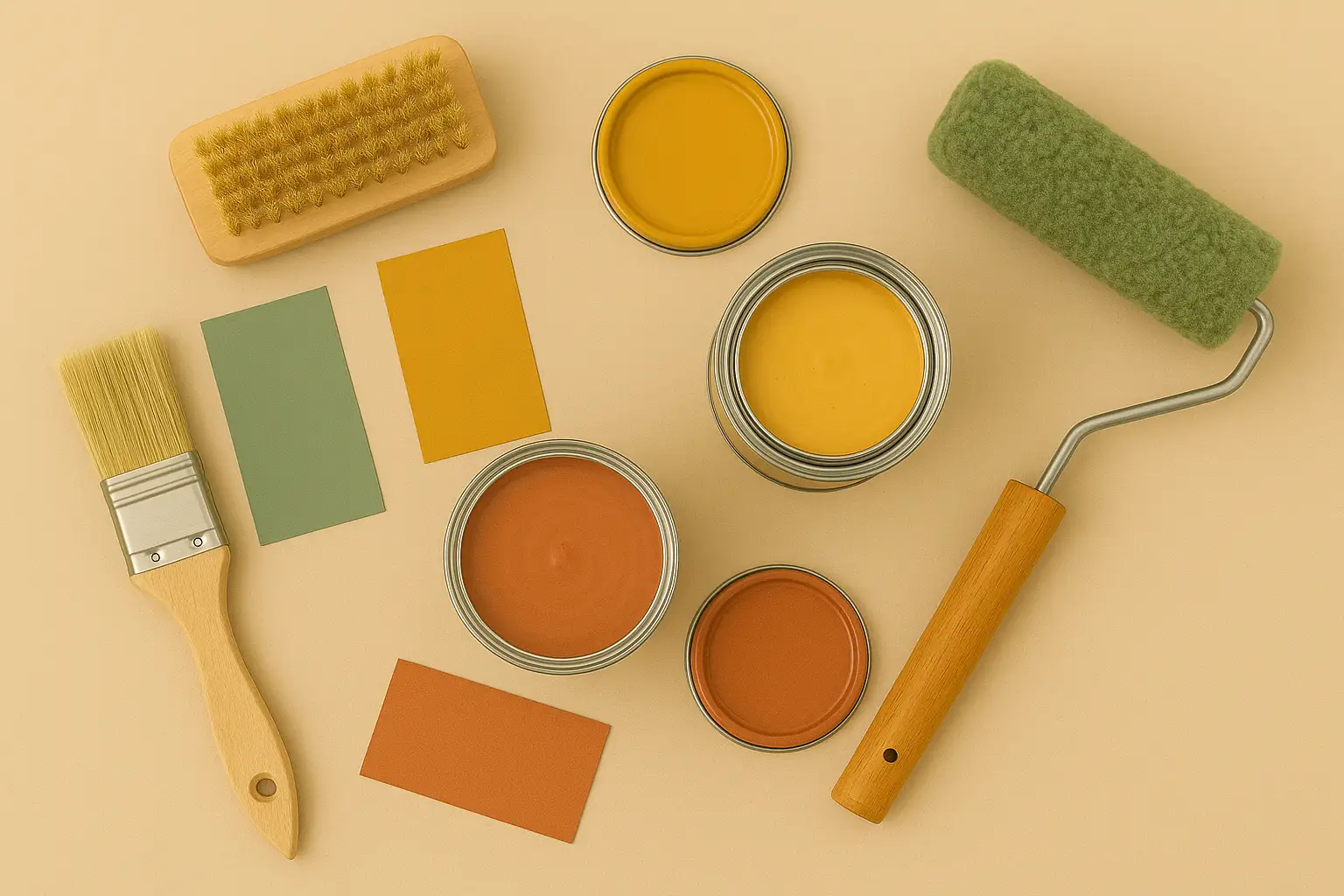
Breathing Easier, Living Greener: The World of Eco Paints and Finishes for a Healthier Home
Insights on eco paints and finishes for a healthier home in a sustainable way.
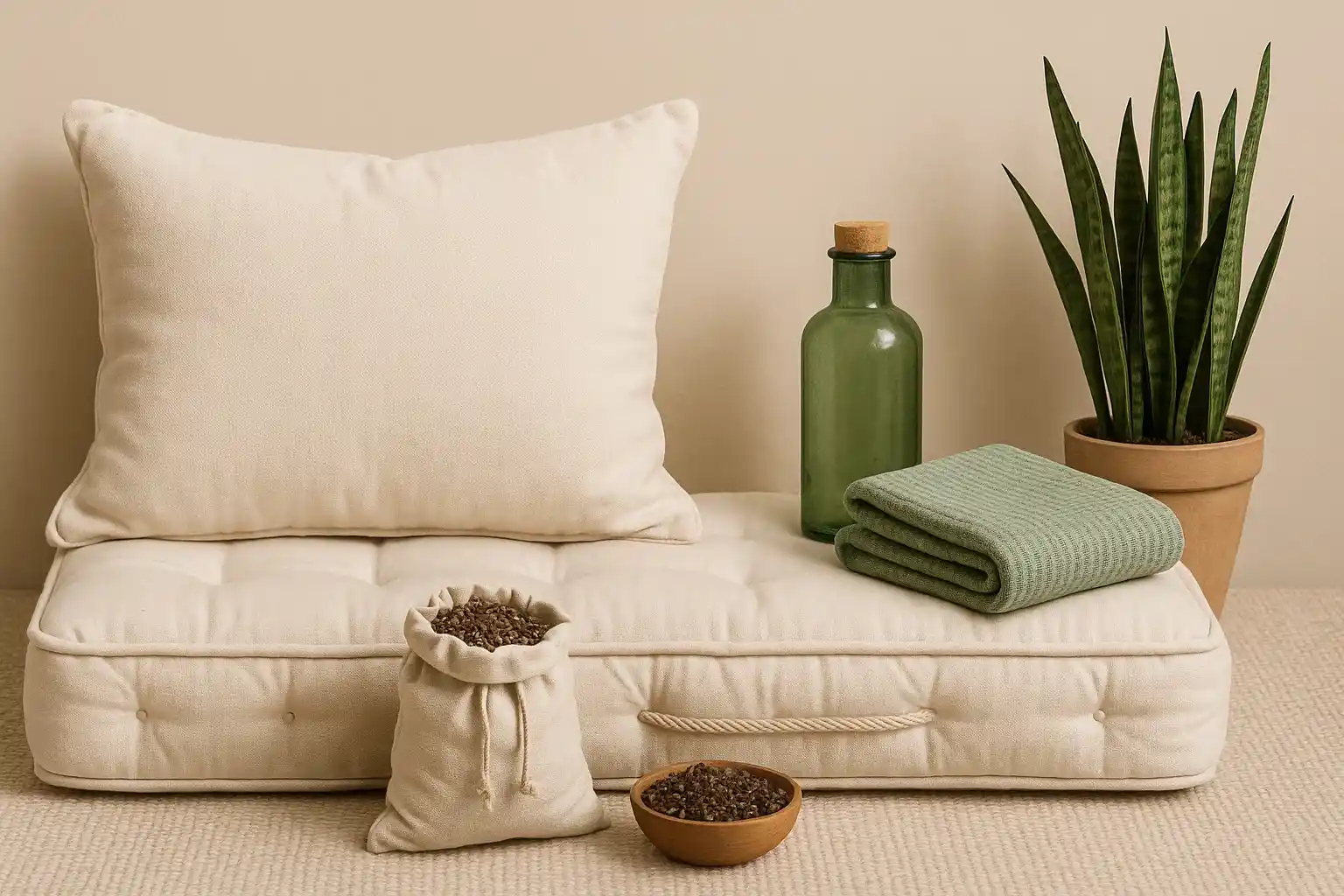
Dreaming of a Greener Sleep: Choosing Natural Mattress Toppers for a Healthier Bed
Upgrade your sleep with non-toxic, breathable, and biodegradable latex, organic cotton, or wool toppers.
Stay in the Loop
Get tips and insights tailored to your interests — no spam, just sustainability.